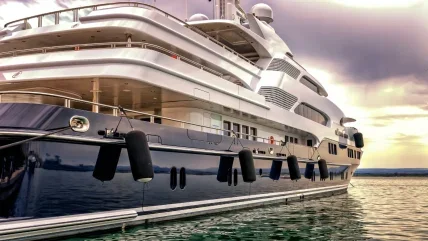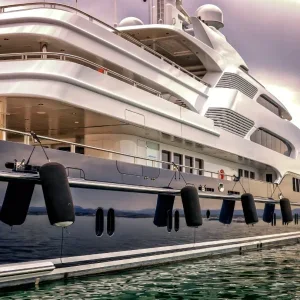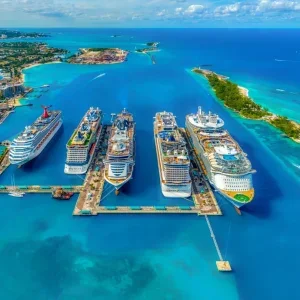
The cruise industry, a dynamic sector within the global travel and tourism market, has weathered numerous challenges over the years. From economic downturns to health crises, the resilience of this industry is notable. However, a new wave of challenges has emerged, driven by increasing societal polarisation. This polarisation, marked by stark divisions in public opinion, political views, and social attitudes, is influencing consumer behaviour, regulatory landscapes, and operational dynamics within the cruise industry.
Understanding Societal Polarisation
Societal polarisation refers to the growing divergence in political, social, and cultural values among different groups within a society. This phenomenon has been particularly pronounced in recent years, fuelled by factors such as political rhetoric, media influence, and social media dynamics. In the context of the cruise industry, polarisation manifests in various ways, impacting everything from passenger demographics and onboard experiences to marketing strategies and corporate governance.
Impact on Consumer Behaviour
Diverse Passenger Demographics
Cruise lines have long catered to a diverse clientele, ranging from families and retirees to luxury travellers and adventure seekers. However, societal polarisation is reshaping these demographics. Political and social views increasingly influence travel decisions, with some consumers opting for cruise lines that align with their values. For instance, cruises promoting environmental sustainability may attract eco-conscious travellers, while those emphasising traditional luxury might appeal to a different segment.
Booking Preferences and Destinations
Polarisation also affects destination choices and booking patterns. Passengers may favour itineraries that align with their cultural or political inclinations. For example, some travellers might prefer cruises that visit regions with progressive social policies, while others might choose destinations known for their conservative values. This trend requires cruise lines to offer a wider range of itineraries to cater to diverse preferences, adding complexity to route planning and marketing efforts.
Marketing and Brand Positioning
Tailored Messaging
In an era of heightened polarisation, generic marketing messages are less effective. Cruise lines must craft tailored communications that resonate with specific segments of their audience. This involves understanding the values and concerns of different demographic groups and aligning marketing strategies accordingly. Social media platforms, with their sophisticated targeting capabilities, play a crucial role in this personalised approach.
Corporate Social Responsibility (CSR)
CSR initiatives have become a key component of brand positioning in the cruise industry. Companies that actively address social and environmental issues tend to attract customers who prioritise these values. For example, cruise lines investing in green technologies and sustainable practices can appeal to environmentally conscious travellers. Conversely, companies that support traditional family values might resonate more with conservative passengers. This strategic alignment of CSR activities with consumer values is essential in a polarised society.
Operational Challenges and Opportunities
Regulatory Landscape
Societal polarisation influences the regulatory environment in which cruise lines operate. Governments and regulatory bodies are increasingly shaped by the prevailing political climate, leading to varying regulations across different regions. Cruise companies must navigate this complex landscape, ensuring compliance with diverse and sometimes conflicting regulations. This requires robust legal teams and adaptive operational strategies to manage risks and capitalise on opportunities.
Health and Safety Protocols
The Covid-19 pandemic has underscored the importance of health and safety in the cruise industry. In a polarised society, attitudes towards health measures such as vaccinations and mask mandates vary widely. Cruise lines must balance these differing views while ensuring the safety of all passengers and crew. Transparent communication and flexible policies, such as offering both vaccinated and non-vaccinated cruises, can help address these challenges.
Crew Management
The composition and management of crew members are also affected by societal polarisation. Crew members hail from diverse cultural and social backgrounds, reflecting the global nature of the cruise industry. Cruise lines must foster an inclusive and respectful work environment, addressing potential conflicts arising from differing viewpoints. Comprehensive training programmes focused on cultural sensitivity and conflict resolution are crucial in this regard.
Technological Adaptation
Digital Engagement
Technology plays a pivotal role in navigating the challenges posed by societal polarisation. Cruise lines are increasingly leveraging digital platforms to engage with customers, offering virtual tours, personalised recommendations, and seamless booking experiences. These platforms also facilitate real-time feedback, enabling companies to quickly adapt to changing consumer preferences and address concerns.
Sustainability Innovations
Innovation in sustainability is another critical area. Polarisation around environmental issues has spurred cruise lines to adopt green technologies and practices. From advanced wastewater treatment systems to energy-efficient ship designs, these innovations not only reduce environmental impact but also enhance brand reputation among eco-conscious travellers.
Future Trends and Strategies
Adaptive Itineraries
To thrive in a polarised world, cruise lines must develop adaptive itineraries that cater to diverse preferences. This involves offering a mix of traditional and unconventional destinations, as well as themed cruises that resonate with specific interest groups. Flexibility in itinerary planning can help attract a broader customer base and mitigate the risks associated with political or social instability in certain regions.
Enhanced Personalisation
Personalisation will be a key differentiator in the future of the cruise industry. Leveraging data analytics and AI, cruise lines can offer customised experiences that align with individual preferences and values. From tailored dining options and entertainment to bespoke shore excursions, personalisation can enhance customer satisfaction and loyalty.
Collaborative Partnerships
Building collaborative partnerships is another strategic approach. Cruise lines can work with local communities, governments, and NGOs to promote sustainable tourism and address social issues. These partnerships can help mitigate the negative impacts of polarisation and foster a positive image of the cruise industry.
Conclusion
Societal polarisation presents both challenges and opportunities for the cruise industry. By understanding and addressing the diverse values and preferences of passengers, cruise lines can navigate this complex landscape effectively. Tailored marketing, adaptive operations, and a commitment to sustainability are key strategies in this endeavour. As the industry continues to evolve, those companies that embrace these principles will be best positioned to thrive in an increasingly polarised world.






